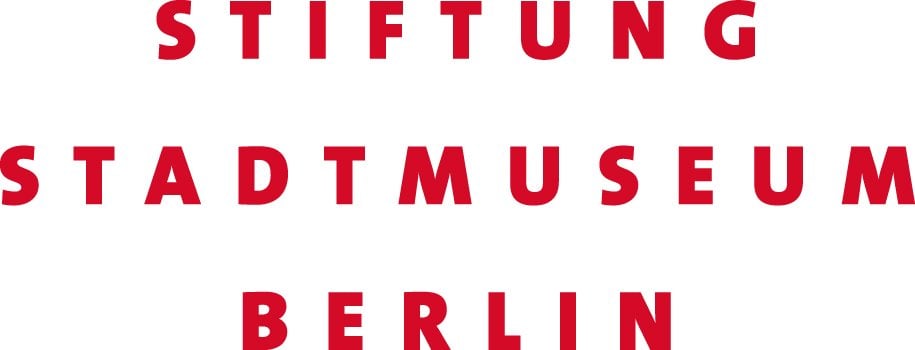Mutual understanding and goals
The Humboldt Forum is a space for open dialogue, both for Berlin locals and for visitors from all over the world.
Statement on the common understanding and goals of the Humboldt Forum
Humboldt Forum: for culture, art, science, exchange and debate
The Humboldt Forum is a space for open dialogue, both for Berlin locals and for visitors from all over the world. There are four partners bringing their expertise to bear: the Ethnologisches Museum and the Museum für Asiatische Kunst of the Staatliche Museen zu Berlin – Stiftung Preußischer Kulturbesitz, the Stadtmuseum Berlin, the Humboldt-Universität zu Berlin and the Stiftung Humboldt Forum im Berliner Schloss.
The open dialogue that constitutes the programme of the Humboldt Forum is also reflected in the teamwork of the partners: with their individual perspectives and skills, they are engaged in developing the Humboldt Forum jointly as an open platform for critical exchange and cultural debate. This statement is intended to formulate a common understanding of the Forum for art, culture and science: as a constantly developing location dedicated to diversity, the transmission of knowledge and of critical reflection.
Namesakes and historic site
The Humboldt Forum is named after the Humboldt brothers, who stand for cosmopolitan openness and an thirst for knowledge: Alexander von Humboldt was an explorer and naturalist; Wilhelm von Humboldt was an educational reformer and scholar in the humanities. Both brothers are nevertheless also representatives of their time, in their understanding of a supposedly neutral, universal European body of science. The Humboldt brothers as namesakes are an inspiration to engage in diverse, open dialogue and at the same time a reason to critically reflect on eurocentric world views.
The Humboldt Forum stands on a special historic site in the partly reconstructed Berlin Palace. Its reconstructed façades, dome inscription and cross are a reminder of traditional power structures and their effects. Many of the exhibits displayed here are of colonial origin. Aware of this tension, the Humboldt Forum faces the resulting responsibility to undertake a critical examination of this site and its history with openness and reflection.
Decolonialism and provenance research: different ways of thinking and acting
Colonialism and racism belong to the history of the site as well as to the history of the collections that are accessible here to the public. The objects from Africa, the Americas, Asia, Australia and Oceania are witness to a long colonial and racist history. In collaboration with representatives of the societies of origin and with international partnerships, the Humboldt Forum provides resources for and is heavily involved in programmes that confront colonialism and its crimes. In analysis and science, such as provenance research, it has instituted changed procedures with the purpose of enabling forward-looking activities in dialogue with visitors and contributors. The Humboldt Forum promotes the continuous questioning and decolonizing of knowledge in science, art and culture through its exhibitions as well as its events programme and educational resources.
Knowledge: Production and mediation, exchange and experience
The mediation and communication of knowledge and culture are central tasks of the Humboldt Forum. This includes not only the presentation of existing knowledge but also a critical examination of the conditions of its formation and the hierarchies and interests associated with it. Cultural education is a core element required to meet this demand. The exhibitions and programmes of the Humboldt Forum examine critically their own knowledge production. They test different types of mediation and knowledge-sharing, and explore the possibilities of the dialogue of the different types of knowledge accessible to us. The Humboldt Forum sees itself as a learning institution engaged in open exchange with visitors and collaborators.
Personal experience and face-to-face meetings are just as important as reflections on the production of knowledge and the power relationships related to it. The Humboldt Forum would like to reach a wide public with diverse interests: residents of Berlin as well as national and international visitors.
Diversity orientation: Living with diversity, creating open dialogue
Diversity” is the decisive foundation for working and thinking in the Humboldt Forum. The Humboldt Forum stands for the equal rights of all people – in all their diversity. It sees itself as a resonance space and a contact zone, a site for joint debates on cultural identities and global futures.
The Humboldt Forum wants to promote open dialogue: to provide a platform and make it audible. Visitors, contributors and staff play an important role in making this diversity something that can be experienced and through which to make their own mark on the content of the Forum.
The Humboldt Forum and its events want to offer “unhindered access” in the broadest sense and to operate sustainably on social, ecological and cultural levels.
The Humboldt Forum wants to use its personal and financial resources using solidarity and collegiality not only to enable open dialogue on site in Berlin but also to actively make contacts worldwide and to nurture them.
Berlin, June 2021
Prof. Dr. Hartmut Dorgerloh
General Director and Chairman of the Board
Stiftung Humboldt Forum im Berliner Schloss
Prof. Dr. Lars Christian Koch
Director of Ethnologisches Museum/Museum für Asiatische Kunst
Staatliche Museen zu Berlin – Stiftung Preußischer Kulturbesitz
Head of Collections – Stiftung Humboldt Forum im Berliner Schloss
Prof. Dr. Dr. Ing. Sabine Kunst
President of the Humboldt Universität zu Berlin
Prof. Dr. Dr. h.c. mult. Hermann Parzinger
President of the Stiftung Preußischer Kulturbesitz
Paul Spies
Director of the Stiftung Stadtmuseum Berlin
Head Curator of the Land Berlin im Humboldt Forum

